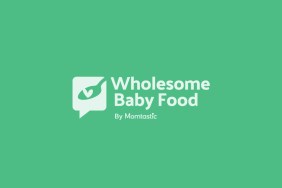Is Your Baby Ready for Solid Foods? Learn About Baby’s Signs of Readiness for Solid Foods
There are many signs that might lead you to believe that your little one is ready to begin eating solid foods. But how exactly do you know if your baby really is ready for solid foods? Has your baby doubled her birth weight? Does your baby have good head control?
Your baby may be 3 months old or 4 months old when you start to feel she may need “something more” than formula or breast milk. Maybe she is beginning to awaken more often at night or eat more often than “usual” and you wonder if introducing solid foods may be what she needs.
The best advice when considering starting solid foods for your baby is to “Watch the Baby – Not the Calendar” This is true for both breastfed and formula fed infants. Follow your baby’s hunger cues and you’ll never go wrong.
A Growth Spurt May be Confused with a Readiness for Solid Foods
Please keep in mind that a growth spurt will occur between 3-4 months of age. Your baby may begin to wake more frequently at night for a feeding and/or may begin to eat non-stop (cluster feed) as she once did as a newborn. This growth spurt often accounts for the increased hunger in your baby and it should not be taken as a sign that your baby needs solid foods added to her diet.
You may try offering your baby more frequent nursing sessions and/or bottle feedings instead of solids; you will find that within a week or two, your baby is oftentimes over the growth spurt and back to feeding “as usual”.
Here are a few “signs” that may indicate your baby is ready for Solid Foods:
Loss of tongue-thrust reflex – This allows baby to drink and swallow liquids with ease; with the tongue-thrust reflex still present, baby may simply drink in liquid purees or push the food back out. According to Dr. Jim Sears, in the first four months the tongue thrust reflex protects the infant against choking. When any unusual substance is placed on the tongue, it automatically protrudes outward rather than back. Between four and six months this reflex gradually diminishes, and that glob of cereal actually may have a chance of making it from the tongue to the tummy!
Ability to let you know she is full from a “meal” with signs such as turning away from the bottle or breast. This is important so that baby is able to self-regulate the amount of food being eaten. This helps stop baby from accidentally overeating as parents may continue to feed baby thinking that she is still hungry.
Ability to sit up and hold head up unassisted
Interest in your food (I tend to disagree with this one as when a baby reaches the age of 4-6 months, he is interested in putting everything in his mouth.)
Doubling of birth weight
Frequently waking in the middle of the night when a solid sleeping pattern had been established. This may not be the best indicator that your baby is ready for solids. Please keep in mind that a growth spurt will occur between 3-4 months of age, 6-7 months of age and also 9-10 months of age. Your baby may also be waking due to an illness or teething.
Won’t My Baby Sleep Through the Night If We Start Solids?
Some parents believe that if they start solids “early” then their infants will sleep through the night sooner. As your baby grows, his sleeping patterns as well as eating patterns change continually.
Around the time a few parents begin to offer solids early is just about the time that an infant may be sleeping for longer periods at a time. This is a natural progression as an infant ages and it oftentimes coincides with the addition of early solids. This coincidence perpetuates the dangerous myth that early offerings of solid foods will help an infant sleep “through the night”.
To further this explanation, let us recall that between 6-8 months old, baby is often back to waking at night for a feeding. By this time baby should be eating solids and it appears that those solids are no longer helping baby sleep through the night. In reality, baby is hitting another growth spurt and may wake again during the night for more feedings regardless of eating solids. This really is “normal” and your baby may wake again during the night for more feedings regardless of eating solids.
I know many babies who began to eat solids “Early” and people are telling me to start my baby early – should I?
Many parents say that their own pediatricians or their friends’ pediatricians have said that it’s fine to start solids (typically cereal) at 4 months of age. It is still common for pediatricians to just say “start solid foods when your baby is 4 months old” because this has been the norm for many years.
The American Academy of Pediatrics (AAP) acknowledges that there are no “strict” age guidelines on introducing solid foods to your baby. However, “The AAP Section on Breastfeeding, American College of Obstetricians and Gynecologists, American Academy of Family Physicians, Academy of Breastfeeding Medicine, World Health Organization, United Nations Children’s Fund, and many other health organizations recommend exclusive breastfeeding for the first 6 months of life.2,127–130 Exclusive breastfeeding is defined as an infant’s consumption of human milk with no supplementation of any type (no water, no juice, no nonhuman milk, and no foods) except for vitamins, minerals, and medications.131 Exclusive breastfeeding has been shown to provide improved protection against many diseases and to increase the likelihood of continued breastfeeding for at least the first year of life. 2005
http://aappolicy.aappublications.org/cgi/content/full/pediatrics;115/2/496This ensures optimal nutritional exposure and may stave off food allergies amongst other issues. Further studies have shown that an infant’s gastrointestinal tract has not or may not have matured enough to properly digest/utilize solid foods until around 6-8 months old.
There is a “conflict” between the AAP Breastfeeding et al and the Committee on Nutrition as regards starting solids. The Committee on Nutrition says babies may be started on solid foods “between 4 and 6 months” of age.
The Committee does not recommend 4 months of age as the absolute starting age however. “At approximately four-to-six months, you can begin adding solid foods. “Most babies are not ready for solids before this time, as they have not lost their tongue-thrust reflex at that age,” Dr. Greer says. Dr. Greer is with the Committee on Nutrition.
Studies show that babies are highly individual in developing a readiness for solid foods. One baby might seem to be ready for solids at 4 months, while another shows no signs of readiness until around 6 or 7 months. Just because your friend’s baby may have began eating solid foods at 3 or 4 months of age does not mean that your baby should.
Don’t be pushed into starting solids and don’t feel like you are a “bad Mommy” if you feel your baby is ready prior to 6 months of age.
**Please keep in mind that “outward” signs of being ready for solids do not mean that your baby’s inner digestive system is mature and ready. You should thoroughly discuss starting your baby on solid foods with your baby’s pediatrician.
If your pediatrician insists that you start your 4 month old infant on solids and you don’t feel baby is ready, ask the pediatriician to explain the benefits of starting solids early.
And remember, you never HAVE to begin introducing complementary foods simply because your pediatrician has suggested that you do so; unless there is some medical need. Only when you have thoroughly discussed the pros and cons of introducing solid foods with your pediatrician will you be able to have a better grasp of just when you should begin offering baby solid foods.
My Parent’s Insist That My Baby Needs “Real Food”
Some parents may be tempted to give in to relatives, grandmothers and sometimes even their own mothers, who say “Give that baby some real food, she’s starving.” or “Nursing that baby isn’t enough, he needs some real food”.
Remember that “real food” is breast milk and/or formula and these contain all the important nutrients that an infant needs to develop properly. Breast milk in particular, and/or formula, will be enough to sustain your baby’s nutritional needs for up to age 1 year old. In fact, introducing solids too early may displace the important nutrition your baby needs to receive from breast milk and/or formula.
![]()
More Information about Baby Solid Food, Solid Food Charts and Baby Food Recipe Topics
Feeding First Solids with Tips for Feeding a Baby the First Solid Foods
Solid Food Stages which includes Age-Ranges of Solid Foods Stages.
How Much Baby Food Should My Baby Eat? You’ll be surprised at how LITTLE baby should eat.
Baby Led Weaning – Is it Right for Your Baby?
Transitioning to Sippy Cups between ages 6 months to 12 months.
Introducing Solid Foods by Age Chart for information about what food to avoid and what foods are appropriate for certain ages.
Baby’s First Foods Homemade Recipes Yummy Homemade Baby Food Recipes for Baby’s very first weaning foods.
Baby Menu Sample – We have compiled a sample menu schedule of what a baby might be eating from 4-8 months old and 8-12 months old. Learn how much milk your baby should be drinking through all stages and how many food cubes might be offered for a baby meal.
![]() Remember, always consult with your pediatrician regarding introducing solid foods to your baby and specifically discuss any foods that may pose allergy risks for your baby.
Remember, always consult with your pediatrician regarding introducing solid foods to your baby and specifically discuss any foods that may pose allergy risks for your baby.
![]() This site complies with the HONcode standard for trustworthy health information: verify here.
This site complies with the HONcode standard for trustworthy health information: verify here.
Getting ready to introduce your baby to solid foods is often a confusing and scary time.
You will probably receive advice (often conflicting advice.) from so many people that you may end up more confused than ever.We’ve put together some useful information that we hope will help you decide when/if your little one is ready for solid foods. Always remember that your pediatrician should be your main resource. Use this page to ask questions if need be.



